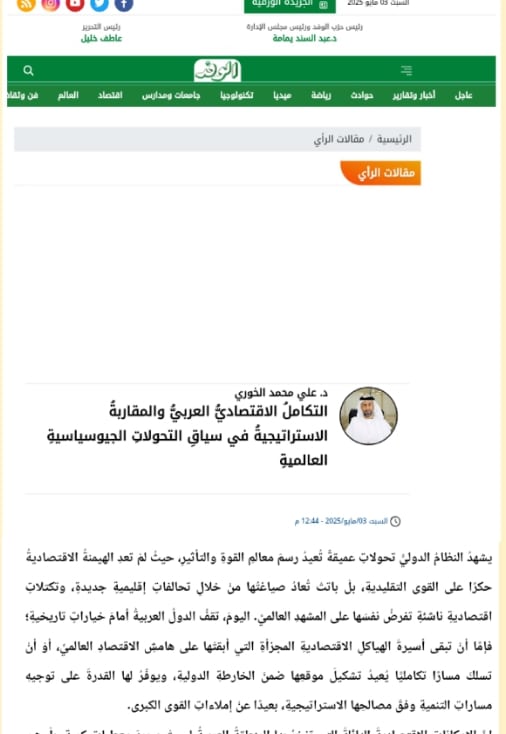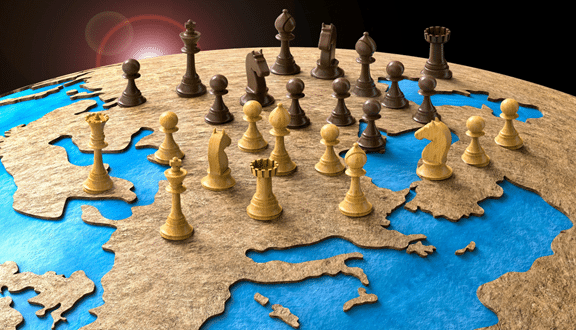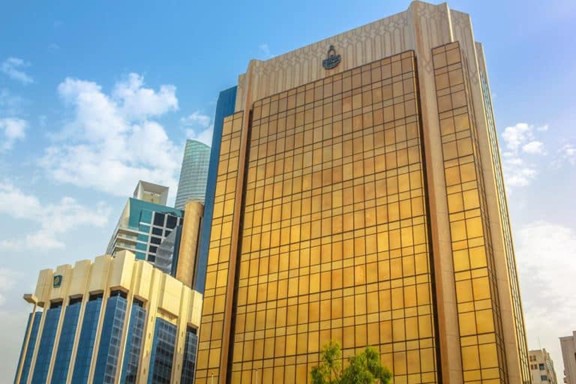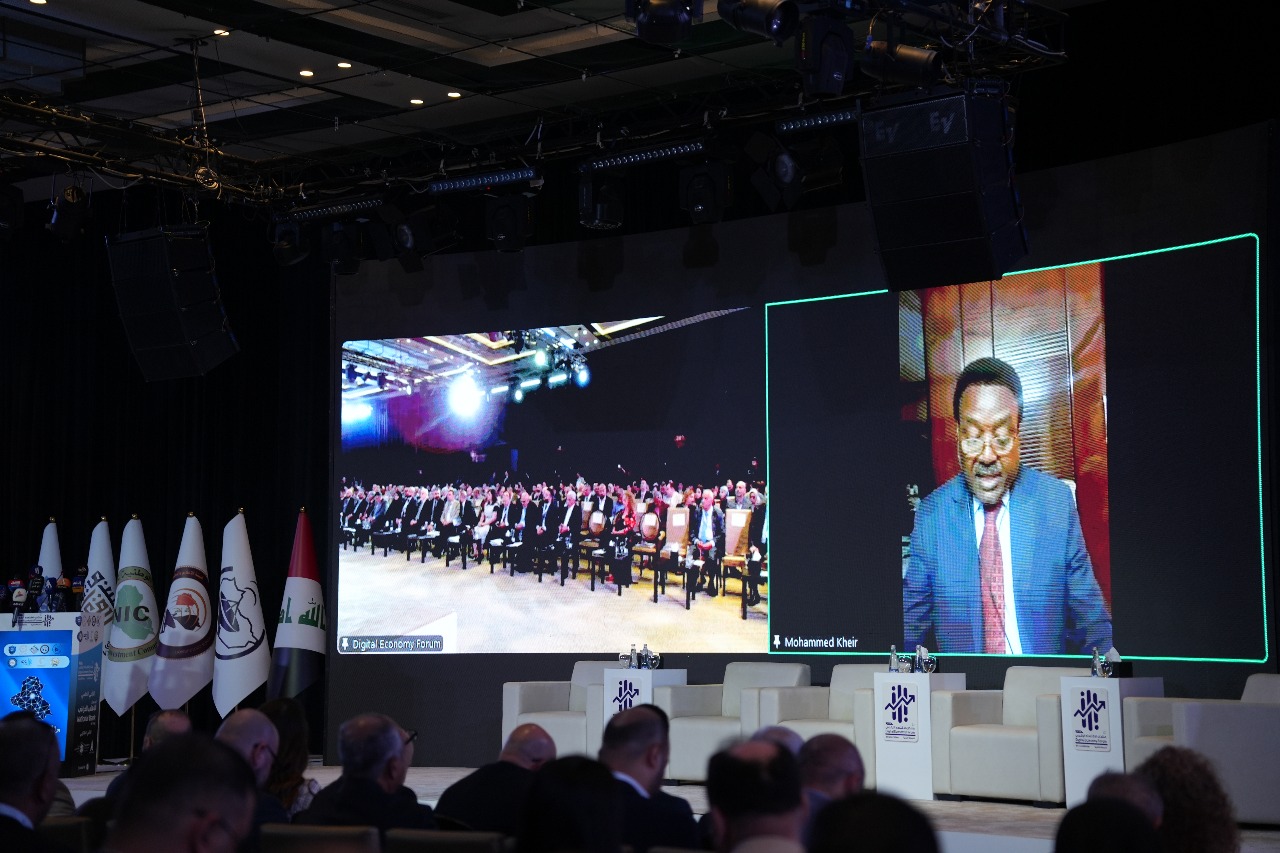Date: 03 – 05 – 2025
Cairo
Source: Al-Wafd Newspaper
Prof. Dr. Ali Mohammed Al-Khouri
The international system is witnessing profound transformations that are reshaping the contours of power and influence. Economic hegemony is no longer the monopoly of traditional powers, but is being reshaped through new regional alliances and emerging economic blocs asserting themselves on the global scene. Today, Arab countries face historic choices; Either they remain captive to the fragmented economic structures that have kept them on the margins of the global economy, or they pursue an integrated path that reshapes their position on the international map and empowers them to steer development paths in accordance with their strategic interests, free from the dictates of major powers.
The enormous economic potential of the Arab region is not merely quantitative data; rather, it represents geostrategic determinants that can be leveraged to create a unified economic force capable of imposing new equations in the global economy. However, the issue is not limited to the availability of resources. Rather, it lies in the ability to formulate an economic vision that transcends narrow national interests and adopts a flexible model of integration based on modern economic analyses and political theories that take into account the structural challenges hindering the achievement of the desired economic unity.
Arab Economic Integration in the Balance of Geopolitics
From the perspective of geopolitics, the Arab world constitutes a bloc with a highly strategic location, linking the world’s economic centers of gravity. However, the absence of a strong institutional structure regulating economic relations among its countries has made it an open arena for foreign intervention, as major powers compete to frame the region’s economies within subordinate systems that serve their long-term strategies. Achieving Arab economic integration does not simply mean boosting growth rates or improving trade indicators. Rather, it represents a restructuring of the region’s geopolitical architecture by building an economic entity capable of protecting its wealth and redirecting it to serve its own interests, rather than depleting it for the benefit of international actors.
Historically, the world has witnessed successful regional blocs that were able to transform disparate economic paths into integrated systems, as is the case with the European Union, which was not the product of top-down decisions but rather the result of institutional development based on shared interests. The European experience confirms that integration is not merely an economic project, but rather a historical process that requires a strong institutional structure and a political will that recognizes that national interests do not conflict with, but are reinforced by, regional interests.
Arab Soft Power
American political scientist Joseph Nye established the concept of “soft power” as a tool that allows states to influence without resorting to hard power, which relies on military and coercive economic means. In the Arab context, the possession of energy resources, vast consumer markets, and exceptional geographical location all position Arab countries to employ their economies as a tool of political influence, not merely as a means of integration into the global market according to unequal rules.
The integration of Arab economies should not be viewed as a purely economic option, but rather as a strategic necessity that recalibrates the balance of power in the region and enables Arab countries to negotiate with major powers on a more balanced basis. Arab oil and gas, for example, are not merely resources to be bought and sold at market prices. They represent geopolitical tools that can be used to achieve long-term strategies, just as major powers do when they employ their economic resources to serve their political and security objectives.
Structural Challenges to Arab Integration
The gap between potential and reality stems from structural obstacles that cannot be overcome without a thorough review of existing economic systems. The most prominent of these obstacles is the weakness of regional institutions capable of formulating coherent economic policies. Economic decisions are still made according to a narrow sovereign logic, which prevents the desired integration. Furthermore, the disparity in economic systems among Arab countries, and the reliance of some on rentier economies, makes achieving true integration a challenge that requires structural reforms to ensure the diversification of income sources and provide a more stable investment environment.
In addition, external interventions have played a major role in obstructing any integration projects. Major powers have sought to fragment Arab markets by imposing unequal trade agreements and fueling internal conflicts that hinder any efforts towards economic unity. In light of these dynamics, overcoming these obstacles requires adopting economic policies based on strategic independence, enabling Arab countries to protect their economic decisions from obstructive external influences.

Towards a New Arab Strategy
Achieving true Arab economic integration does not necessarily mean an immediate transition to an economic union model. Rather, it can begin through gradual integration, based on alliances between countries with similar economic policies, while establishing an institutional framework that ensures gradual expansion to include all Arab countries. Such an approach will enable countries to test integration mechanisms on a smaller scale before expanding them on a broader scale.
In addition, adopting an economic model that relies on innovation and technology, rather than solely on the export of raw materials, is a key factor in ensuring the success of integration. The world is witnessing structural transformations in the nature of the economy. Natural resources are no longer sufficient to create competitive economies. Instead, investment in technology, the knowledge economy, and advanced industries have become the primary drivers of economic power.
Redefining the Arab Future
In a world moving toward major economic blocs, Arab countries can no longer afford to remain in a state of economic fragmentation. Failure to move toward integration means continued economic dependency and the loss of opportunities available in the new global order. What is required is not only a restructuring of economic relations among Arab countries, but also a redefinition of the concept of economic sovereignty so that it is no longer viewed as an obstacle to cooperation, but rather as a catalyst for establishing a regional system capable of achieving a balance between national and collective interests.
Historical experience has proven that nations without a clear economic project remain hostage to the dictates of others. Hence, the challenge facing Arab countries lies not only in overcoming current obstacles, but also in their ability to devise a new economic model that transcends traditional patterns and sets them on the path to true economic independence. If this is not achieved, the Arab future will remain contingent on power equations that have no place for the weak.











